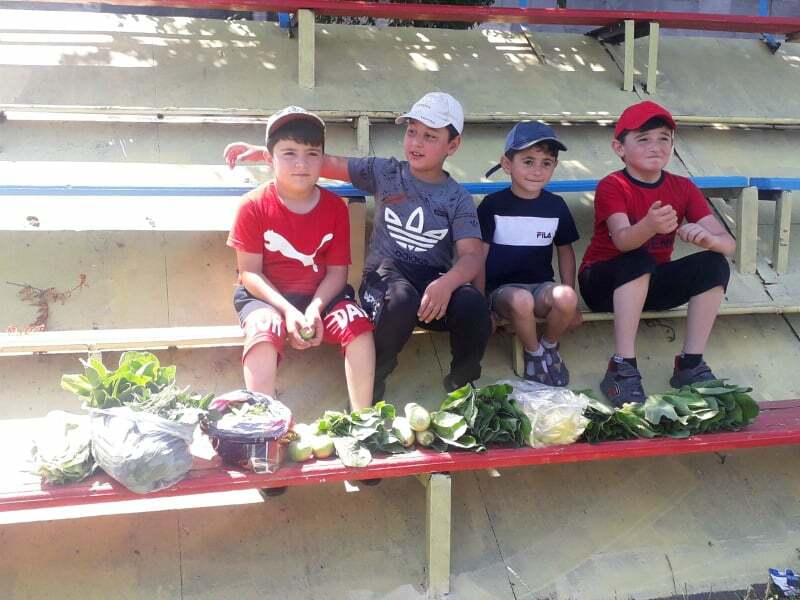Stepanavan №2 Grigor Lusavorich basic school joined the Best School Mini Garden Competition in 2021, when the school won a grant to establish its first-ever greenhouse, started mastering modern agricultural technologies, and at the same time teaching children natural sciences in a natural environment.
Upon gaining enough experience, the school made a breakthrough and took second place in the Best School Mini Garden 2022 competition. The children were fully engaged in the activities, from choosing the varieties to harvesting and cooking healthy and tasty dishes.
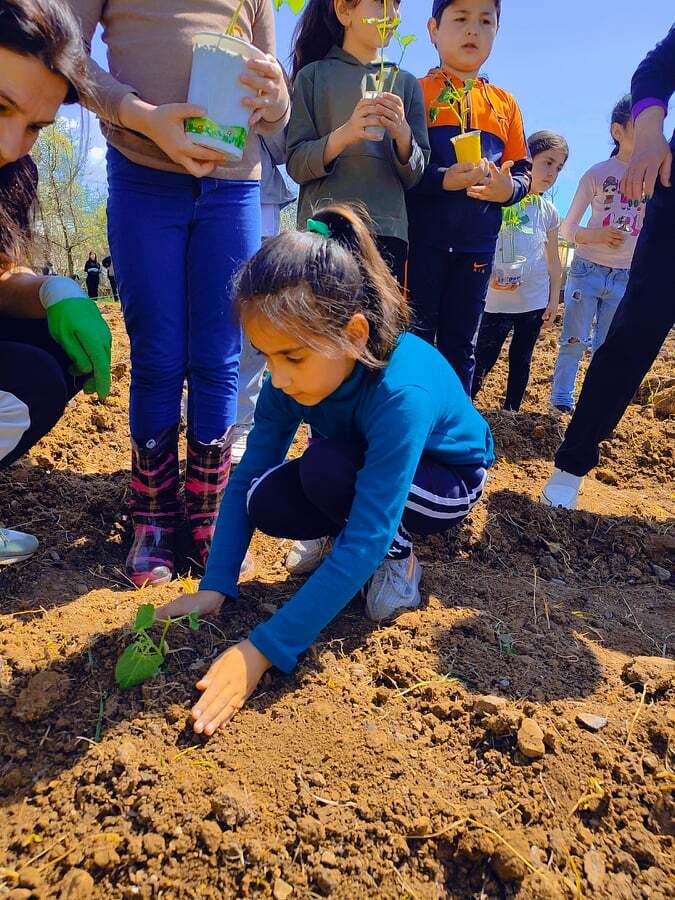
The garden was divided into parts. Children from each grade had to maintain their own plot where they grew the plants they had chosen: beans, peas, beets, potatoes, carrots, corn, cucumbers, and pepper.
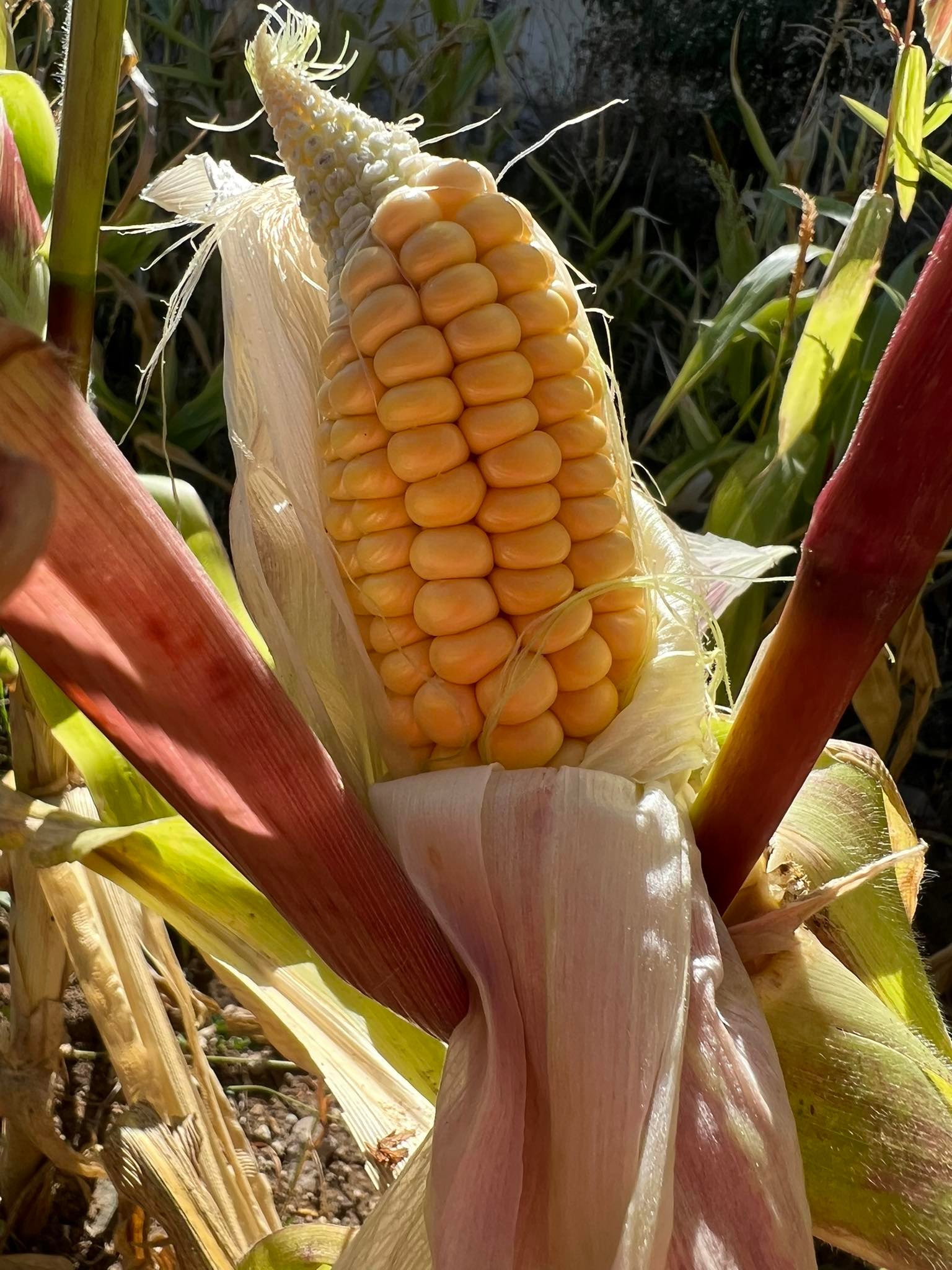
The farmwork resumed in spring. The land was plowed twice: first by tractor and then by hand. Every local schoolchild knows that the more porous the soil is, the better it’s oxygenated. The garden was established to the south of the school so the plants could get enough sunlight and warmth. To protect the seedlings from bad weather, anti-hail nets were installed. The drip irrigation system ensured an uninterrupted water supply to the plants.
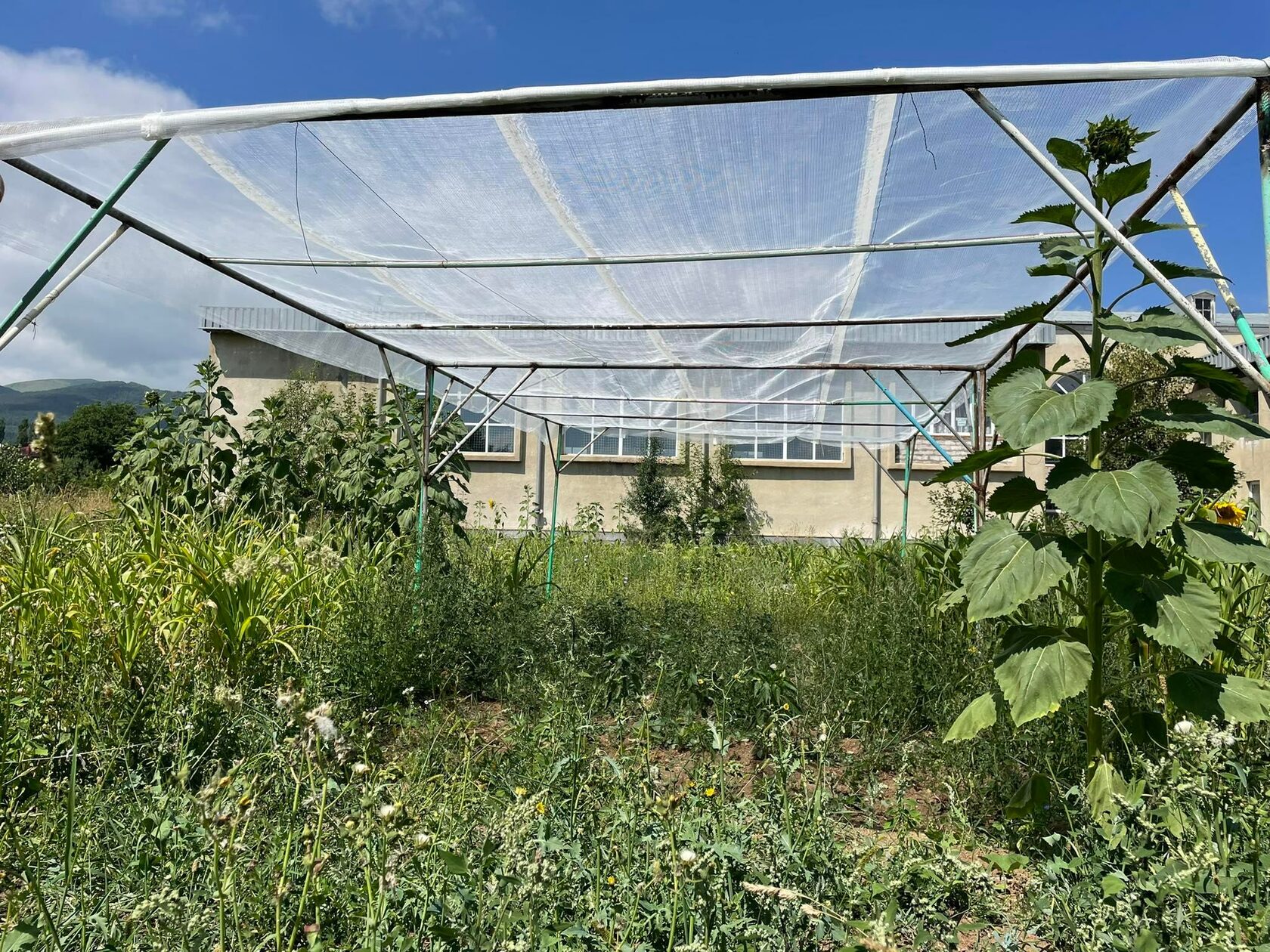
Biofertilizers were used to improve soil fertility. The children dug out the remains of the plants and mixed them with the soil again; they also brought ash and decomposed manure from home to enrich the soil with iron, phosphorus, calcium, and magnesium.
With the help of acid tests and experiments, the children determined soil acidity, which is an important condition for plant development.
“School garden is an ideal platform for practical work. Here we can secure interdisciplinary connections between various subjects: geography, chemistry, biology, natural science, technology, and even entrepreneurship. During chemistry lessons, the children study the chemical composition of the soil, define whether it’s acid or neutral, and find out what type of soil is good for different plants. During biology lessons, they study the process of pollination, development, and structure of plants. During geography lessons, they learn to determine wind direction and learn how it can affect plant growth,” school headmaster Syuzanna Nazaryan says. “After conducting thorough research and gaining professional skills, the idea to establish a greenhouse matured. We applied for a grant and received it. For the greenhouse, we selected plants that are not typical for our region: kohlrabi, cauliflower, chicory, etc. Under the guidance of teachers, the children maintain both the garden and the greenhouse. In fact, everyone united around the idea: all school children, parents, community members, and businessmen.”
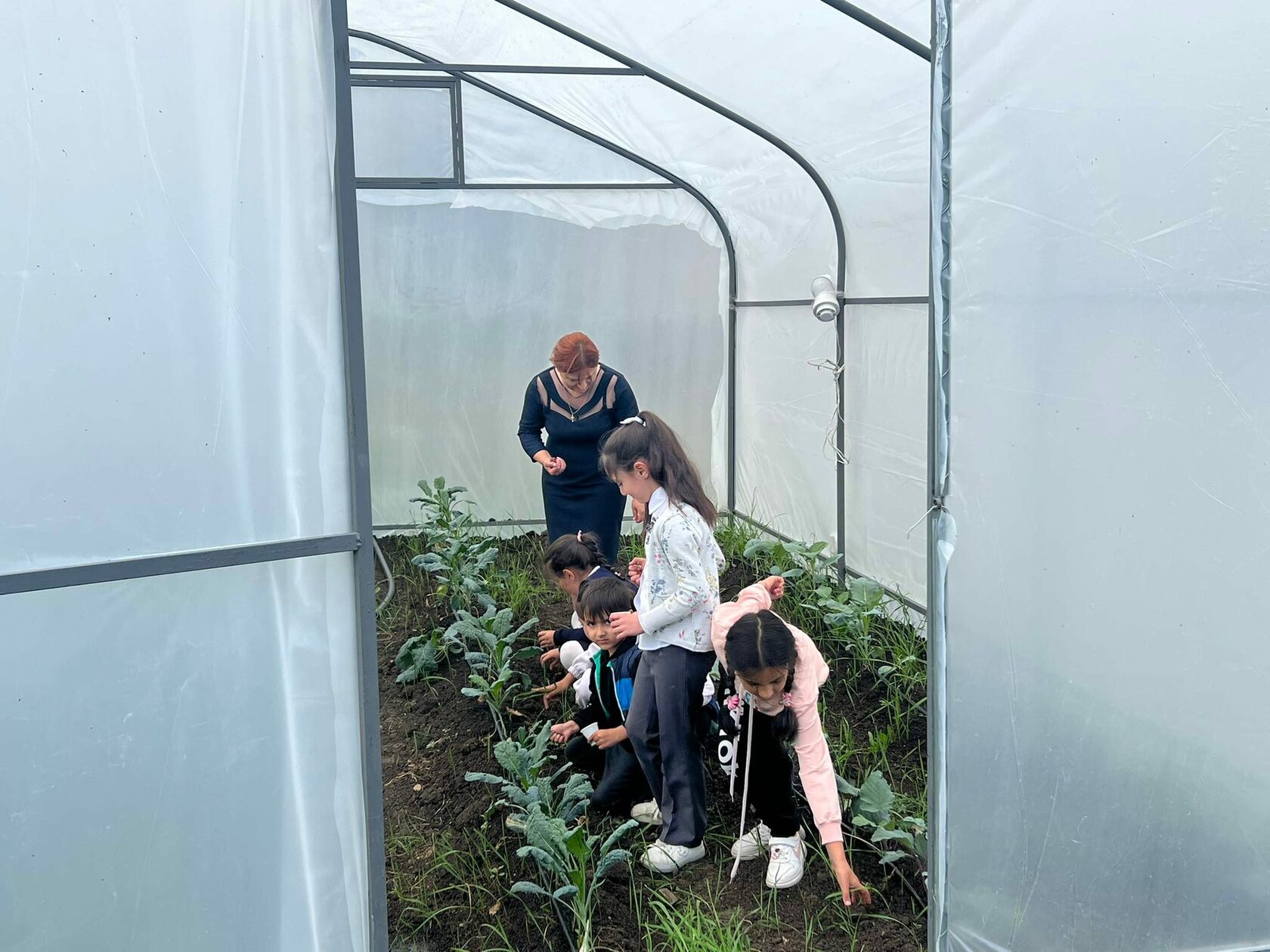
Grown with love and care, the plants showed gratitude: in autumn, the school enjoyed a bountiful harvest that was sold at an agricultural fair. Proceeds from the sale were spent on school needs, including tableware for the little ones. Some vegetables were used during technology lessons for preparing various dishes.
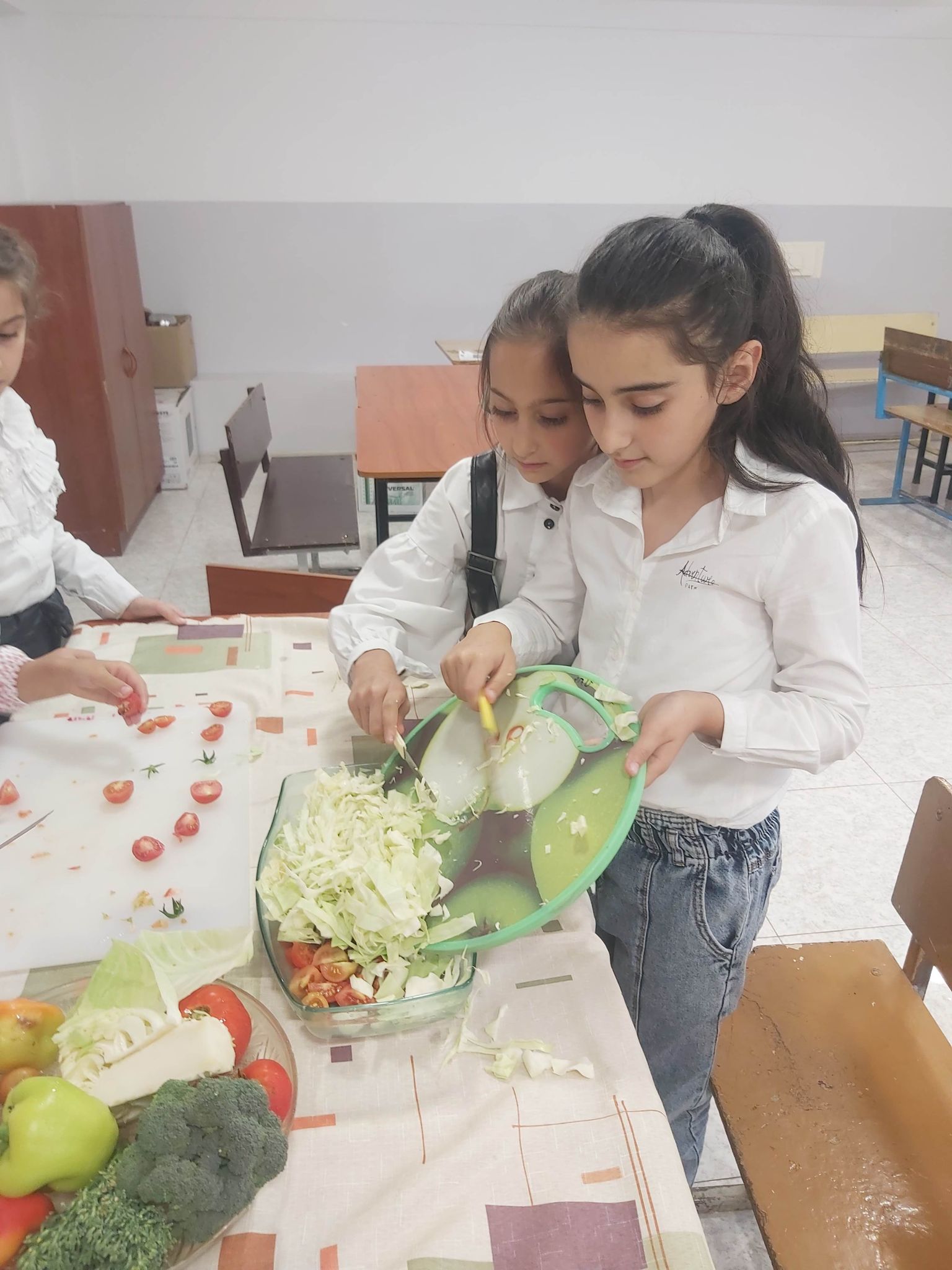
Thus, the organic garden helped the school receive additional income and diversify the school menu with healthy vegetables while the children learned organic farming techniques during practical lessons.
The school also elaborated a garden development plan to get more crops to process and include in school meals.
Participation in the Best School Mini Garden inspired Stepanavan №2 school to improve the garden for the children’s well-being. However, no one can tell a success story better than the children who were integral to the entire process from sowing to harvesting.
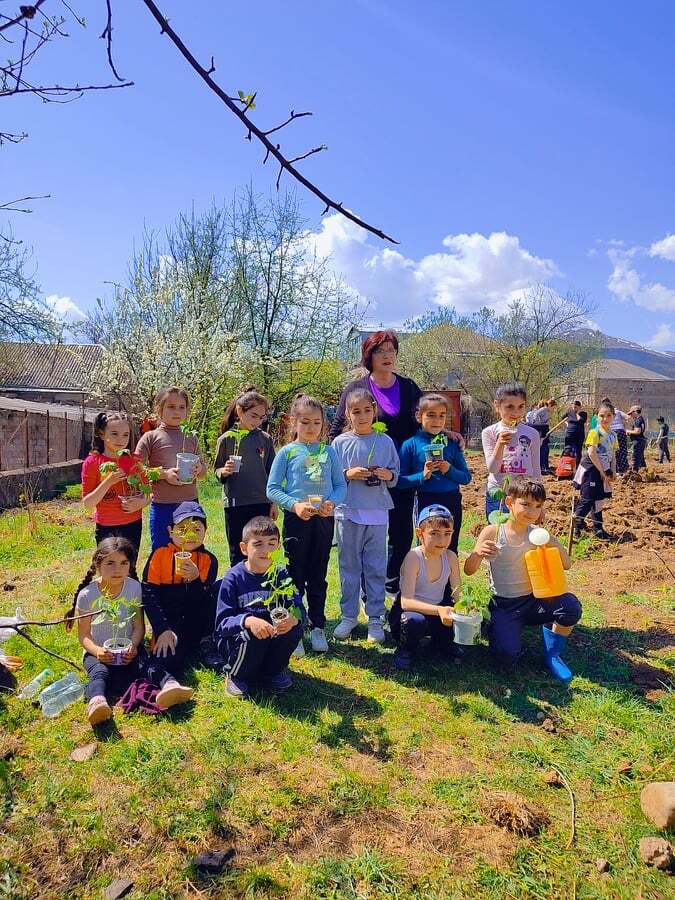
Inessa from grade 7 shares her story:
This year our class faced an interesting challenge - the cultivation of a plot. We responded to it with excitement because we were impatient to demonstrate our knowledge and skills in agriculture, learn new methods of land cultivation, and harvest heavy crops.
Of course, all had to be started with plowing and fertilizing the land. We all got down to work with great enthusiasm but I should confess that our boys were the best. During a short period of time, they plowed the whole plot that had never ‘seen’ agricultural implements before.
Afterward, we cleared the land of roots and weeds. In this activity, boys and girls were equal. Our classmates brought ash and manure to scatter them immediately after the plowing. I remember how happy we were when adults made barbecue at home. You will think how can be barbecue linked to farming? After the dish was ready, there were piles of ash left and we brought this ash to school to use it as fertilizer.
After the plot was cultivated, we had to make a choice: what to plant. After heated discussions, we decided on carrots, tomatoes, and cucumbers. My classmates said these vegetables are super healthy as they help strengthen immunity and maintain the health of the digestive tract, nails, and teeth, as well as fight cardiovascular and skin diseases. By the way, we also decided to plant some flowers.
The boys made the beds and the girls put seeds into the soil with a big hope to get an organic and rich harvest. With great inspiration, we went to our garden together with our teacher to work there and discuss different topics. Lessons in environmental studies were also held in the garden. The weeds we didn’t need were turned into a herbarium.
Can you imagine our joy when we saw the first cucumber sprout? It also took a lot of effort to get tomato seedlings.
However, our expectations were justified and in summer we picked the first vegetables from our garden. We divided the crops into parts and brought the vegetables home. Our family members were extremely happy.
For the second time, we harvested the crops in September. We prepared a vegetable salad at the technology lesson. Well, I would never have thought that a salad can be so tasty.
For the third and last time, we harvested the crops for participation in a fair. The proceeds from the sale allowed us to prepare more healthy and delicious dishes for our primary school children.
As a result of our work, we acquired new knowledge and skills, both agricultural and commercial. Some of my classmates decided to become entrepreneurs and grow organic vegetables.
Well, it’s all I wanted to say. I do hope that the program will be continued and we will be able to grow new plants. I wish all of us to achieve our goals!
